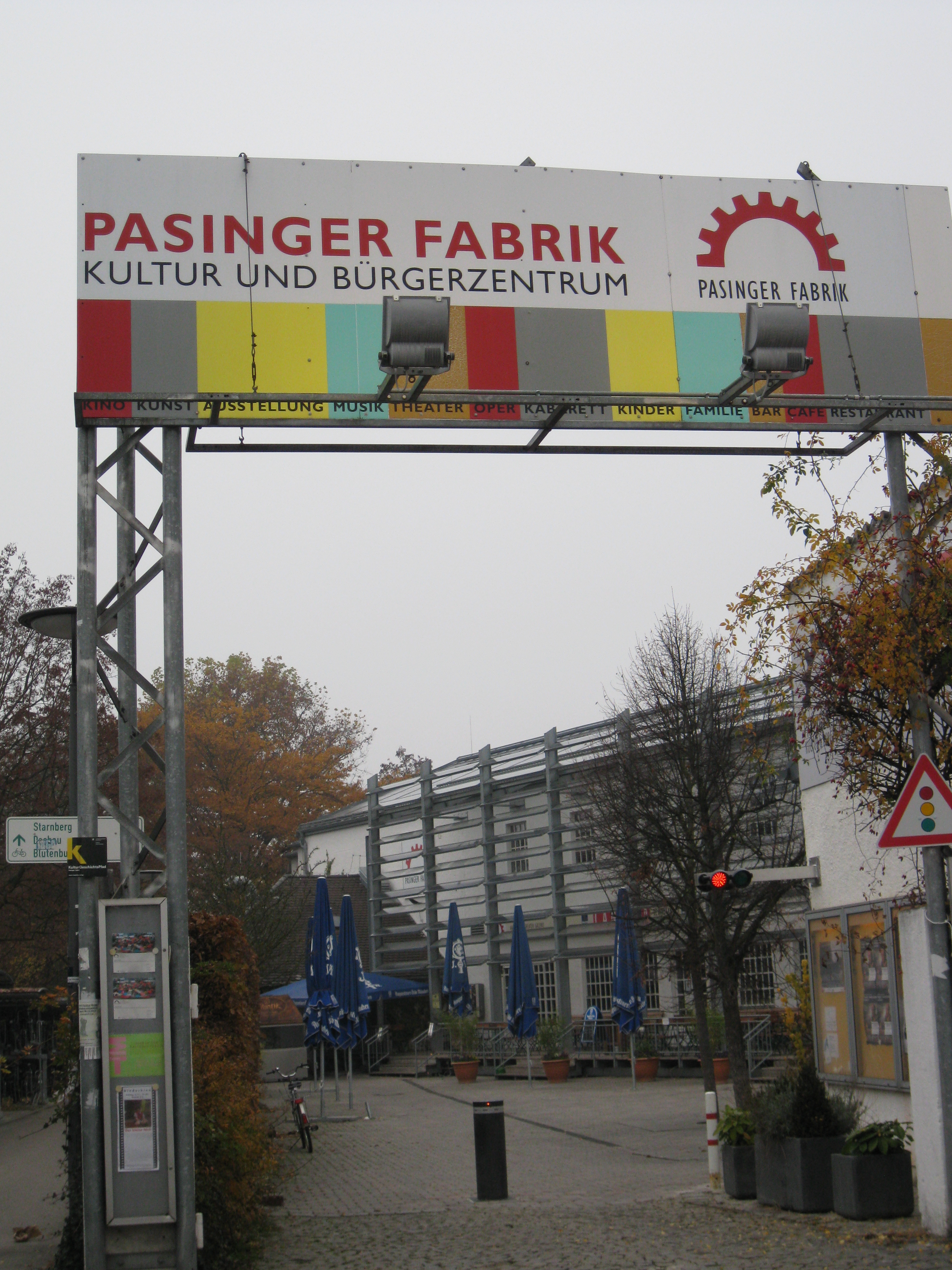Pasinger Fabrik on:
[Wikipedia]
[Google]
[Amazon]

 Pasinger Fabrik is a former factory in
Pasinger Fabrik is a former factory in
Pasinger Fabriktheater VIEL LÄRM UM NICHTS
{{Authority control Theatres in Munich Buildings and structures in Munich Pasing-Obermenzing

 Pasinger Fabrik is a former factory in
Pasinger Fabrik is a former factory in Munich
Munich ( ; german: München ; bar, Minga ) is the capital and most populous city of the German state of Bavaria. With a population of 1,558,395 inhabitants as of 31 July 2020, it is the third-largest city in Germany, after Berlin and Ha ...
, Bavaria
Bavaria ( ; ), officially the Free State of Bavaria (german: Freistaat Bayern, link=no ), is a state in the south-east of Germany. With an area of , Bavaria is the largest German state by land area, comprising roughly a fifth of the total lan ...
, Germany
Germany,, officially the Federal Republic of Germany, is a country in Central Europe. It is the second most populous country in Europe after Russia, and the most populous member state of the European Union. Germany is situated betwe ...
, which is used as a cultural centre
A cultural center or cultural centre is an organization, building or complex that promotes culture and arts. Cultural centers can be neighborhood community arts organizations, private facilities, government-sponsored, or activist-run.
Asia
* Cen ...
and event venue nowadays. It is located in Pasing
Pasing is a district in the city of Munich, Germany, and part of the borough Pasing-Obermenzing.
Overview
Pasing is located west of the Munich city centre, at the north-western edge of the city's innermost traffic zone. The district is mainly res ...
, a quarter in the western part of Munich.
History
The industrial buildings of Pasinger Fabrik were built in 1895 by the German architect August Exter. Originally, it was used as a manufacturing plant by the Heymann shoe factory, which produced leather shoes. After a fire in 1904, the household appliances manufacturer Ritter acquired the factory. In 1986, the city of Munich bought the buildings to use them for new purposes.Cultural Centre
Nowadays, Pasinger Fabrik is a cultural centre, containing the theatre VIEL LÄRM UM NICHTS, a restaurant and bar, where concerts take place, as well as several projects for children, adolescents and families. Its cultural programme is diverse: There are performances by theatre groups,comedians
A comedian or comic is a person who seeks to entertain an audience by making them laugh. This might be through jokes or amusing situations, or acting foolish (as in slapstick), or employing prop comedy. A comedian who addresses an audience dire ...
, political satirists and musicians of different kinds of music. Its large gallery frequently hosts temporal exhibitions. Pasinger Fabrik also contains „Munich’s smallest opera house“, staging one or two operas or operettas, adapted for a small cast and orchestra, each year.
Theatre Viel Lärm um Nichts
The '' theatre VIEL LÄRM UM NICHTS ''(named after Shakespeare’s play ''Much Ado About Nothing
''Much Ado About Nothing'' is a comedy by William Shakespeare thought to have been written in 1598 and 1599.See textual notes to ''Much Ado About Nothing'' in ''The Norton Shakespeare'' ( W. W. Norton & Company, 1997 ) p. 1387 The play ...
'') has made an essential contribution to the development of Pasinger Fabrik into the cultural centre it is today.
The theatre was founded by the German actors Margit Carls and Andreas Seyferth in 1985. After working in state and municipal theatres for several years, they decided to set up their own theatre in order to combine the quality you can find in these theatres with a more autonomous, individualistic and collective way of producing.
Such an approach is characteristic for German ‘off-theatres’ or ‘free theatres’, which, similarly to fringe theatres, stand for experimental and unconventional performances. Free theatres usually have much smaller budgets than state and municipal theatres (the most dominant theatre categories in Germany), which rely heavily on public funding. Nevertheless, some free theatres also receive public funding; the city of Munich has supported the theatre VIEL LÄRM UM NICHTS since their first production, for example.
The repertoire
A repertoire () is a list or set of dramas, operas, musical compositions or roles which a company or person is prepared to perform.
Musicians often have a musical repertoire. The first known use of the word ''repertoire'' was in 1847. It is a ...
of the theatre VIEL LÄRM UM NICHTS consists mainly of their own translations and versions of classic
A classic is an outstanding example of a particular style; something of lasting worth or with a timeless quality; of the first or highest quality, class, or rank – something that exemplifies its class. The word can be an adjective (a ''c ...
plays. Moreover, dramatisations of narrative
A narrative, story, or tale is any account of a series of related events or experiences, whether nonfictional (memoir, biography, news report, documentary, travelogue, etc.) or fictional ( fairy tale, fable, legend, thriller, novel, etc. ...
texts are frequently performed. Characteristically, the theatre experiments with new stage concepts instead of performing on the usual proscenium stage
A proscenium ( grc-gre, προσκήνιον, ) is the metaphorical vertical plane of space in a theatre, usually surrounded on the top and sides by a physical proscenium arch (whether or not truly "arched") and on the bottom by the stage floor ...
.
In 1996 as well as in 1997, the theatre was listed as one of the 10 best off-theatres in the German-speaking area by the '' Impulse Theater Festival'' in Germany.
References
External links
Pasinger Fabrik
{{Authority control Theatres in Munich Buildings and structures in Munich Pasing-Obermenzing